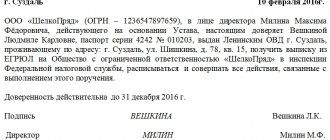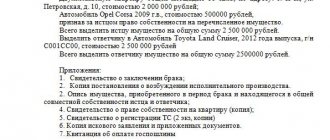When you make a decision to adopt a child, an important point will be the paperwork.
Certificate 164 y -96 for registration of guardianship is one of the most important documents for guardianship or adoption of a child. A medical report of the adoptive parent is a legal requirement that allows the guardianship and trusteeship authorities to verify the proper state of health of the future adoptive parent or guardian.
Where to get a medical examination
- Candidates for adoptive parents/guardians are not required to undergo a medical examination exclusively at their place of residence. A medical institution must have a license to carry out medical activities (According to the Appendix to the Regulations on licensing of medical activities (with the exception of the specified activities carried out by medical organizations and other organizations included in the private healthcare system in the territory of the innovative), approved by the Decree of the Government of the Russian Federation of April 16, 2012 No. 291, work and services for medical examination of candidates for adoptive parents, guardians (trustees) constitute just such an activity).
- Candidates have the right to apply not only to state or municipal, but also to private medical institutions if they have a license to practice medicine.
- According to paragraph 1 of Art. 127 of the Family Code of the Russian Federation, paragraph 3 of Art. 146 of the Family Code of the Russian Federation and clause 4 of Appendix No. 1 to Order of the Ministry of Health of the Russian Federation No. 290n, medical examination of candidates is carried out within the framework of territorial programs of state guarantees of free provision of medical care to citizens. We are talking about those cases when the candidate applies to a state or municipal medical institution.
How much does it cost to make honey? Is there a fee for the certificate and how long is it valid?
If honey The conclusion is needed urgently, that is, it is possible to order the document for a fee. The entire procedure will take no more than 2-3 days.
A private medical center will require the following documents from you:
- passport;
- certificates from district dispensaries - from a narcologist and a psychiatrist;
- test results.
They will create a card at the reception of a private medical institution and ask you to do a fluorography and go through all the specialists according to the mandatory list, on a first-come, first-served basis.
The medical commission formalizes its decision in a protocol with the completion of a conclusion form. The cost of services for obtaining certificate 164/у-96 is approximately 5 thousand rubles. The validity period of such a document is 6 months, and is counted from the date of signature by the head physician.
What diseases prevent a child from being accepted into a family?
The list of diseases in the presence of which a person cannot adopt a child, take him into guardianship, trusteeship, or take him into a foster or foster family is established by Decree of the Government of the Russian Federation No. 117 of February 14, 2013. The following persons cannot accept a child into the family:
- those suffering from respiratory tuberculosis belonging to groups I and II of dispensary observation;
- those with infectious diseases before the termination of dispensary observation due to stable remission (including HIV-infected people and those suffering from hepatitis B and C);
- malignant neoplasms of any localization, stages III and IV, as well as malignant neoplasms of any localization, stages I and II, before radical treatment;
- mental disorders and behavioral disorders until the termination of dispensary observation;
- those suffering from drug addiction, substance abuse, alcoholism;
- as well as those with diseases and injuries that led to group I disability.
What requirements must a guardian or adoptive parent meet?
The future adoptive parent must meet certain requirements - this must be confirmed by the commission. Firstly, a mandatory check-up with a psychiatrist is needed - the presence of mental illness is a limitation on establishing guardianship and adoption. Another limitation is disability (non-working group) and the presence of infectious diseases that can harm children (such as tuberculosis and hepatitis). Of course, children are not allowed to be adopted by people who suffer from chronic alcoholism or drug addiction or substance abuse.
The process of contacting a medical organization
A candidate for adoptive parents applies to the registry of a medical organization, where a form is selected (or filled out) for him.
. After this, the candidate is sent to a general practitioner or to a paramedic (if he is assigned certain functions of the attending physician in the manner established by Order of the Ministry of Health and Social Development of the Russian Federation dated March 23, 2012 No. 252n “On approval of the Procedure for assigning to a paramedic, midwife the head of a medical organization, when organizing the provision of primary health care and emergency medical care, of certain functions of the attending physician for the direct provision of medical care to the patient during the period of observation and treatment, including the prescription and use of drugs, including narcotic drugs and psychotropic drugs ").
A general practitioner (or paramedic) issues referrals for examination by medical specialists, laboratory and radiographic studies. List of medical specialists and studies determined by Order of the Ministry of Health of the Russian Federation No. 290n:
- examination by a general practitioner (precinct general practitioner, shop general practitioner, general practitioner (family doctor));
- carrying out the Wasserman reaction (RW);
- molecular biological blood test for hepatitis B virus;
- molecular biological blood test for hepatitis C virus;
- determination of antibodies of classes M, G (IgM, IgG) to the human immunodeficiency virus HIV-1 (Human immunodeficiency virus HIV 1) in the blood;
- determination of antibodies of classes M, G (IgM, IgG) to the human immunodeficiency virus HIV-2 (Human immunodeficiency virus HIV 2) in the blood;
- fluorography of the lungs or x-ray examination of the lungs;
- examination by an infectious disease specialist;
- examination by a phthisiatrician;
- examination by a psychiatrist-narcologist;
- examination by a psychiatrist.
Certificate 160/у for adoption of a child
Medical certificate 160/y is necessary both for future parents and for children who are going to be adopted or taken into custody. Different commissions are formed for children under 3 years old and for children aged 3-17 years. As a rule, the guardianship authorities themselves handle children's certificates; this certificate is valid for six months. But candidates for adoption will need to work hard to visit all the doctors and pass the necessary tests. The certificate for parents is valid for only 3 months.
It is important to know:
- The list of medical specialists and studies in clause 5 of Appendix No. 1 to Order No. 290n of the Ministry of Health of the Russian Federation is exhaustive, i.e. The guardianship and trusteeship authorities or the chief physician of a medical organization are not given the authority to include any additional studies in it.
- Based on the content of clause 6 of Appendix No. 1 to Order of the Ministry of Health of the Russian Federation No. 290n, as well as in accordance with the explanations of the Ministry of Health of the Russian Federation in the Letter of the Ministry of Health of the Russian Federation dated October 15, 2013 No. 14-2/2090076 “On medical examination of citizens wishing to become adoptive parents, guardians ( trustees) or adoptive parents,” examinations by medical specialists and studies can be carried out in various medical organizations if they have a license to carry out medical activities that provide for the corresponding types of work (services).
- If, at the time of contacting a general practitioner (or paramedic), the candidate has medical documents (or copies thereof or extracts from medical documents) containing the results of previously carried out (including as part of a medical examination, or preventive medical examination, as well as during the provision of medical assistance in inpatient conditions) examinations listed by medical specialists, laboratory and radiographic studies, the duration of which does not exceed three months from the date of their conduct (except for studies to detect tuberculosis, the duration of which is usually slightly higher, since it should not exceed the period of preventive medical examinations of the population in accordance with Decree of the Government of the Russian Federation of December 25, 2001 No. 892 “On the implementation of the Federal Law “On Preventing the Spread of Tuberculosis in the Russian Federation”), a general practitioner (or paramedic) has the right (but is not obliged) to accept them without re-examination or research of the candidate (Clause 9 of Appendix No. 1 to Order of the Ministry of Health of the Russian Federation No. 290n).
- When conducting examinations in order to establish a diagnosis, medical specialists use medical history data, results of laboratory and radiographic studies, information from medical documents submitted by the person being examined, their copies and extracts from medical documents (clause 10 of Appendix No. 1 to Order of the Ministry of Health of the Russian Federation No. 290n).
- When conducting examinations by a psychiatrist-narcologist, a psychiatrist, an infectious disease doctor, or a phthisiatrician, the candidate must provide a certificate from a dispensary.
- The results of examinations carried out as part of a medical examination (including information on the establishment (termination) of dispensary observation for diseases specified in clause 10 of Appendix No. 1 to Order of the Ministry of Health of the Russian Federation No. 290n, the conclusion of a specialist doctor) and studies are entered into the medical record of the outpatient .
List of doctors for a child
The list of doctors that a minor must undergo is established by law. The conclusion form does not contain an exact list.
In fact, every adopted minor must undergo an examination by the following specialists:
- pediatrician;
- surgeon;
- neurologist;
- psychiatrist;
- ophthalmologist;
- otolaryngologist;
- infectious disease specialist;
- phthisiatrician.
In addition, the following examinations must be carried out:
- blood, urine, stool analysis;
- fluorography;
- analysis for HIV, syphilis, hepatitis.
Examinations are carried out at the clinic at the location of the organization for orphans or at the place where the child is assigned.
Difference between adoption and guardianship
Adoption and guardianship are completely different ways of welcoming a child into a family. They fundamentally differ in the goals and level of responsibility that adults assign to themselves.
Key differences between adoption and guardianship:
- Adoption is formalized through the court, and guardianship is through the guardianship and trusteeship authorities.
- An adopted child is in the family as a blood relative, and a child taken under guardianship is deprived of “parental” supervision after reaching adulthood.
- The purpose of adoption is to create family and emotional ties with the child for life, and the purpose of guardianship is the ability to provide minimal conditions for the growth and development of the child until he is unable to survive in society on his own.
- Guardians support the child with allocated government funds, and parents take on the responsibility of providing for the child.
- Guardianship and trusteeship authorities are responsible for the life of the child and check the conditions and level of comfort in the home. If we are talking about registration of guardianship, then such checks will be constant until the child turns 18 years old. In the case of adoption, checks will only be done for the first three years.
If there is an intention to take a child into a family, based on compassion and a desire to save him from loneliness, then it makes sense to adopt a child.
Validity period of medical certificates
Medical examination N164 has a statute of limitations of six months, and certificate 160 has a statute of limitations of only 3 months; after this period, it is necessary to undergo the examination again.
If the certificate is expired
If for some reason the candidate for guardianship/adoption was unable to submit medical documents on time, then he will be required to go through the entire list of doctors again, since the PPP must know the health status of the potential parent at the moment, the conclusion that was issued earlier will be considered invalid.
Collecting the necessary documentation is perhaps one of the most difficult procedures in the guardianship/adoption procedure, since it requires considerable psychological costs and a lot of patience. But remember that when going towards your goal, you should not be afraid of difficulties, because you will give happiness to your child and bring a ray of sunshine to your home.










